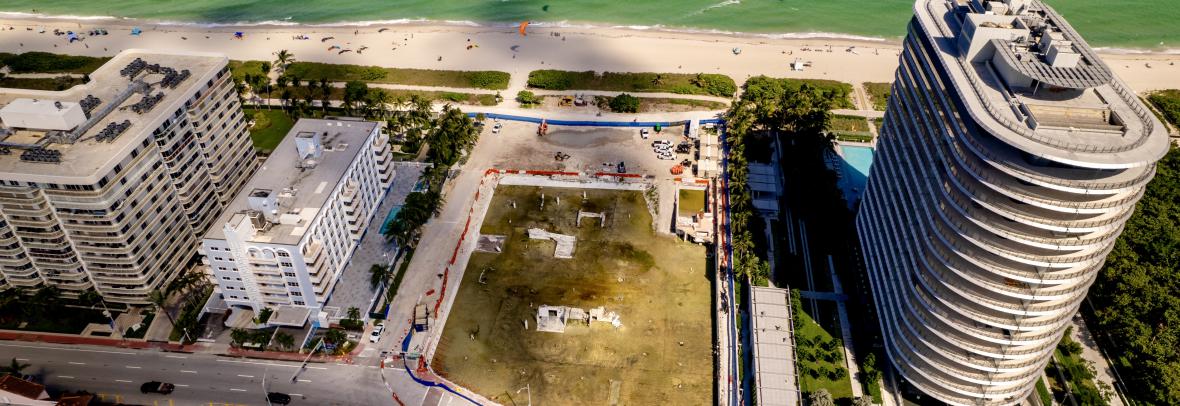
Lawmakers Reconsider Condo Safety Requirements
Fla. lawmakers passed a bill last year that tightened condo safety requirements, and they’re now considering a slightly lower bar for some of the toughest new rules.
TALLAHASSEE, Fla. – A Florida Senate committee Tuesday backed a proposal that would make changes to a condominium-safety law passed last year after the deadly collapse of the Champlain Towers South building in Surfside.
In a special legislative session last May, Florida lawmakers passed a law that tightened the safety rules for condo associations, focusing on things like inspections and condominium-association financial reserves.
The latest proposal (SB 154) deals with issues that arose as a result of that law, with some condo boards grappling with the increased costs for their residents. It would need to pass both chambers in the Florida Legislature, which is not yet in session for the year, and be signed by Gov. Ron DeSantis.
During Tuesday’s meeting of the Senate Regulated Industries Committee, Sen. Shevrin Jones, a Miami Gardens Democrat whose district includes Surfside, asked what would be done to “provide relief” to condominium owners who could be forced to pay more because of last year’s law.
“I hear you, and we have heard from folks throughout the state on that issue, on the question of will it be burdensome,” bill sponsor Jennifer Bradley, R-Fleming Island, said. “And I cannot sit here today and tell you that there is not an owner in the state of Florida who won’t see an increase because of this … effort on the part of the Legislature to make sure that folks that live in condos are safe.”
The Regulated Industries Committee voted unanimously to approve the bill, which, for example, would make changes in what are known as “milestone” inspections for condominium buildings three floors or higher.
Under last year’s law, inspections are required for buildings that have been occupied for 30 years – or 25 years if within three miles of a coastline. After initial inspections, the buildings have to go through the process every 10 years.
The new bill would ease that somewhat, allowing buildings within three miles of the coastline to be inspected after they have been occupied for 30 years. The 25 years of occupancy could still stand, however, if local officials were to require it depending on “local circumstances, including environmental conditions such as proximity to salt water.”
The bill would also allow local officials to extend inspection deadlines if building owners have entered into contracts with architects or engineers but the inspections cannot be finished in time.
“We don’t want to have a gotcha,” Bradley said.
A key issue in last year’s law (SB 4-D) dealt with condominium associations having adequate financial reserves to make needed repairs to buildings. In part, the law required what are known as “structural integrity reserve” studies to help determine how much money needs to be set aside.
In the past, some associations didn’t put enough money in reserves, which led to the new bill’s focus. Those residents could now face hefty costs if buildings need major repairs. The studies will look at potentially expensive repair items, such as structural features of buildings like roofs, load-bearing walls and fire-protection systems.
Bradley said the bill includes changes such as removing floors from the list. The bill also proposes allowing the studies to “recommend that reserves do not need to be maintained for any item for which an estimate of useful life and an estimate of replacement cost or deferred maintenance expense cannot be determined” – a provision that Bradley said could apply to foundations.
The Legislature and Gov. Ron DeSantis approved last year’s law after 98 people died in the June 2021 collapse of the Surfside building. While the law was aimed at bolstering the safety of buildings, officials also said the collapse is also having ramifications for condominium associations trying to buy property insurance.
Insurance lobbyist Lisa Miller, a former state deputy insurance commissioner, told the Senate committee that insurance companies “are looking at this bill.” “The companies need to be able to see what’s in them (the buildings),” Miller said. “Before Champlain Towers, they really were insuring them based on the agent’s word or just data that wasn’t transparent.”
© 2023 The News Service of Florida. All rights reserved.
